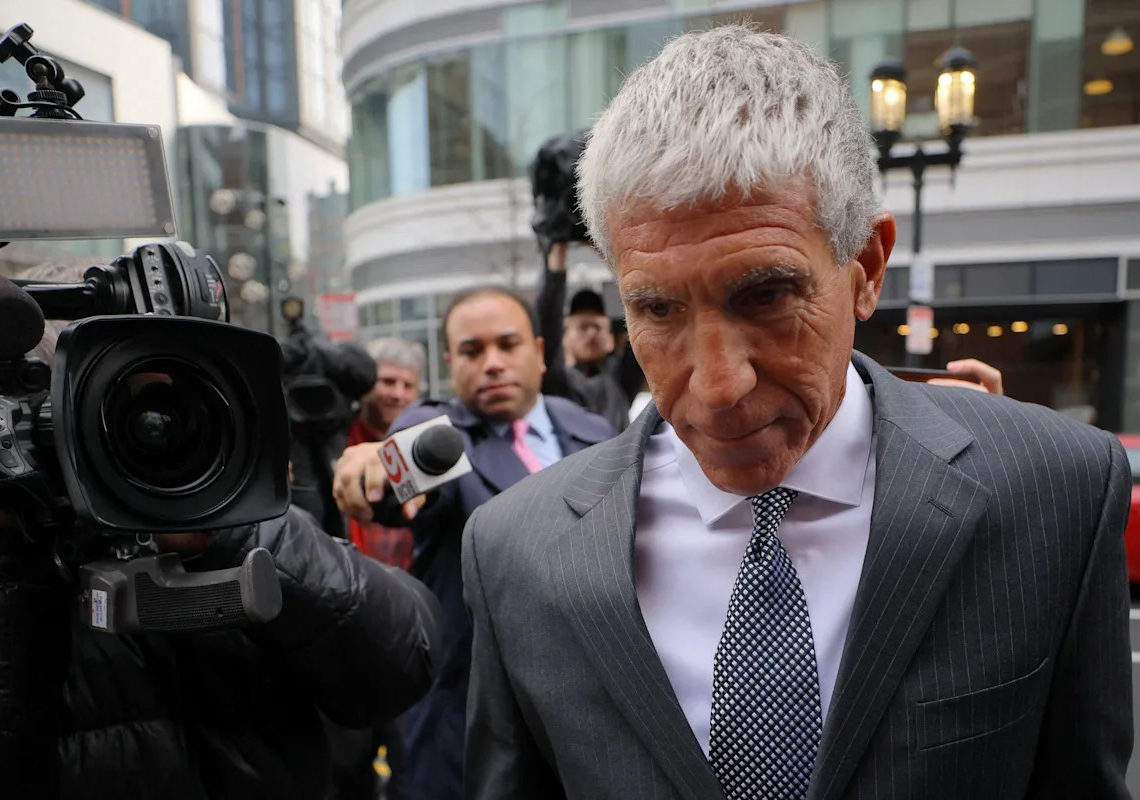William “Rick” Singer, the silver-haired ringleader of a nationwide college admissions scandal that landed kids from affluent families into elite schools, can open a new counseling business if he discloses his criminal past to clients, according to court documents unsealed July 15.
Singer was sentenced to prison in connection with the “Operation Varsity Blues” scandal in 2023 on charges involving racketeering, money laundering, and fraud. Judge Denise J. Casper of the U.S. District Court in Massachusetts ruled that Singer can be in the business of college admissions again on the condition that he shares a statement detailing his crimes.
“Mr. Singer admitted to, among other things: bribing standardized test proctors and administrators to engage in cheating on college entrance exams,” the statement reads in part. “Singer took in more than $25 million from his clients, from which he made payments to co-conspirators totaling more than $7 million, and transferred, spent, or otherwise used more than $15 million for his own benefit.”
The judge’s ruling allows Singer to operate ID Future Stars, a college admissions and life coaching service that boasts on its website that Singer’s team has “guided thousands of students and special talent candidates.”
Casper issued the ruling on July 14, which requires Singer to provide a copy of the statement detailing his crimes to clients and display it prominently on the company website. The company’s homepage did not appear to feature the statement as of July 15.
‘No problem,’ Singer’s attorney says
The ruling comes after Singer cooperated with federal prosecutors to expose wealthy families involved in the admissions scheme and after serving time in prison. Singer’s attorney, Aaron Katz, said in a statement that his client has “no problem advising current and future clients of his past actions,” adding that “he had been doing so even prior to the court’s ruling.”
The company’s website has long included a mea culpa from Singer.
“I am not afraid to tell people who I am and that I made a mistake, took full responsibility and want to share my expertise, passion, and desire to help shape our next generation’s leaders,” the statement reads. “We will continue to utilize our deep relationships with the respected decision-makers at colleges and universities but will not stray from staying and living in good standing.”
Court records show Singer’s lawyers proposed a less detailed version of the statement that Casper ultimately ruled he has to share. Singer’s lawyers in court filings called the government’s statement a “‘shaming penalty’ designed to embarrass Mr. Singer and deter others from associating with him or ID Future Stars.”
‘Varsity Blues’ scandal: Prosecutor scoffs at Rick Singer’s new college counseling service
What will Singer have to tell clients?
Singer pleaded guilty in 2019 in connection with the scheme and admitted to bribing SAT and ACT proctors, and adding fake awards, extracurriculars, and essays to students’ college applications. He also bribed college athletic coaches and administrators through program donations to designate applicants as athletic recruits based on fabricated athletic achievements.
The ruling requires Singer to display a detailed statement explaining what he did wrong on his company website and to share a written copy of the statement with parents, students, and other clients. He also has to say how much he made off the scheme — Singer made at least $15 million, according to the statement.
A federal judge in Boston sentenced Singer in 2023 to 42 months in prison, ordered him to pay over $10 million in restitution and forfeit $8.7 million in assets, the statement says.
Fake disabilities, photoshopped faces: How feds say celebrities, coaches and scammers got kids into elite colleges
What did the Varsity Blues mean for colleges?
Singer’s nationwide scheme rocked the world of higher education. The case ultimately led to dozens of guilty pleas, including from Hollywood stars Felicity Huffman and Lori Loughlin, who separately hired Singer to help their children. Schools the Justice Department implicated included Yale, Stanford, the University of Southern California, Wake Forest, and Georgetown.
Over 50 people – including wealthy CEOs and high-profile celebrities – were indicted in Varsity Blues, the largest college admissions case ever brought by the Justice Department.
Some students in the scam pretended to have disabilities while others photoshopped faces onto different students’ bodies. And one Florida man received a four-month prison sentence for secretly taking SAT or ACT exams in place of students, or correcting their answers after they had taken the exam in Texas or California.
Despite revelations of the scandal, the same manic worrying by some parents over how to get their kids into certain schools continues. And the number of applications to the richest and most selective universities keeps rising.
“He has found, in some ways, the perfect industry for a person who wants a second chance,” Jeff Selingo, a bestselling author of books on college admissions, told USA TODAY in 2024 after Singer launched the new admissions venture. “There are no regulations, there’s no licensing and the anxiety of parents is higher than it’s ever been.”
Contributing: Zachary Schermele and Chris Quintana, USA TODAY
This article originally appeared on USA TODAY: College admissions scandal mastermind allowed to reopen business
The post Rick Singer, ‘Varsity Blues’ mastermind, can consult college hopefuls again, judge rules appeared first on USA TODAY.



